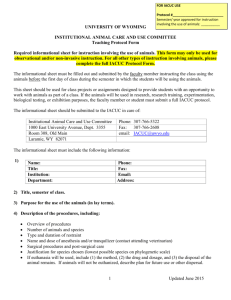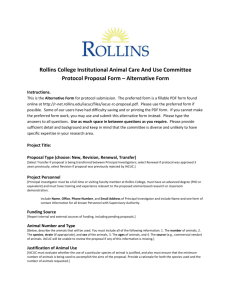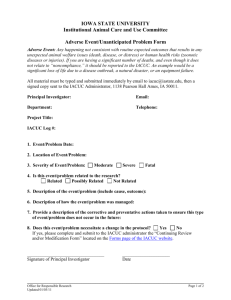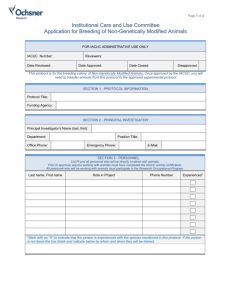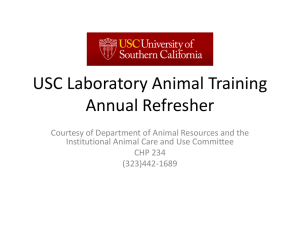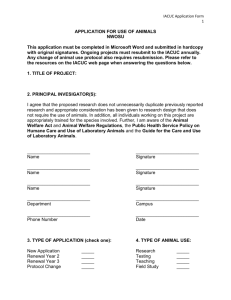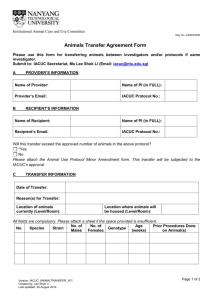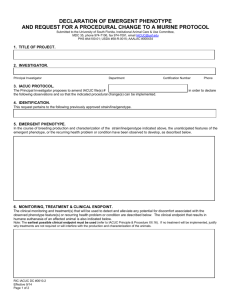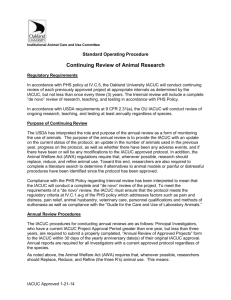IACUC Policy 10.6: Protocol Renewal and Expiration
advertisement
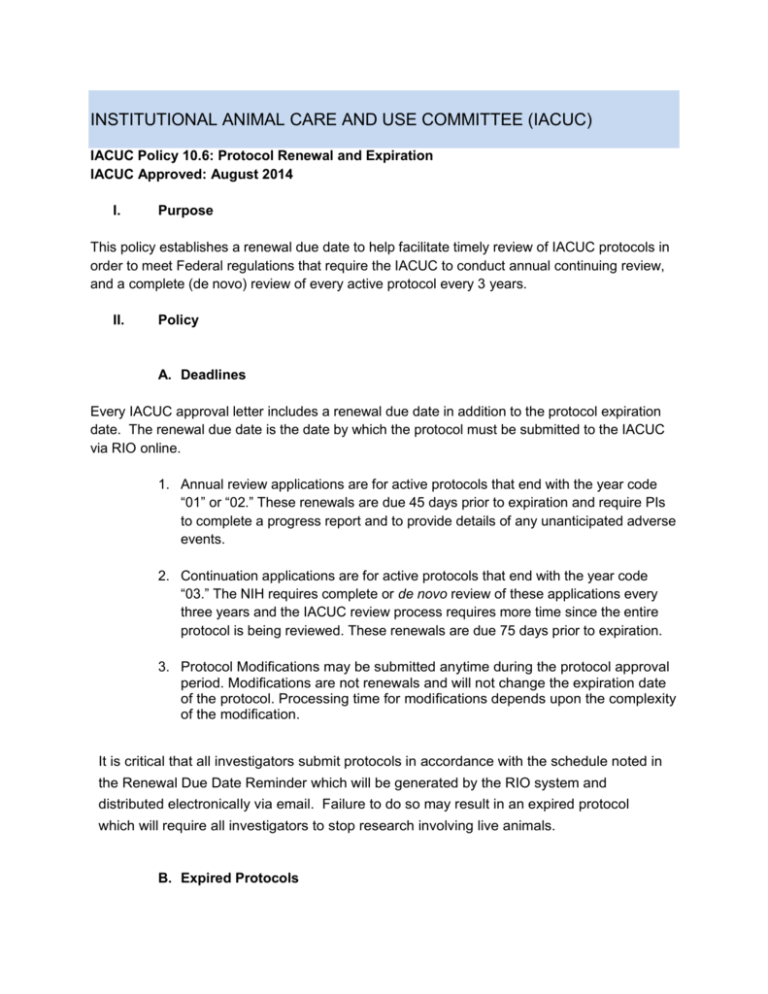
INSTITUTIONAL ANIMAL CARE AND USE COMMITTEE (IACUC) IACUC Policy 10.6: Protocol Renewal and Expiration IACUC Approved: August 2014 I. Purpose This policy establishes a renewal due date to help facilitate timely review of IACUC protocols in order to meet Federal regulations that require the IACUC to conduct annual continuing review, and a complete (de novo) review of every active protocol every 3 years. II. Policy A. Deadlines Every IACUC approval letter includes a renewal due date in addition to the protocol expiration date. The renewal due date is the date by which the protocol must be submitted to the IACUC via RIO online. 1. Annual review applications are for active protocols that end with the year code “01” or “02.” These renewals are due 45 days prior to expiration and require PIs to complete a progress report and to provide details of any unanticipated adverse events. 2. Continuation applications are for active protocols that end with the year code “03.” The NIH requires complete or de novo review of these applications every three years and the IACUC review process requires more time since the entire protocol is being reviewed. These renewals are due 75 days prior to expiration. 3. Protocol Modifications may be submitted anytime during the protocol approval period. Modifications are not renewals and will not change the expiration date of the protocol. Processing time for modifications depends upon the complexity of the modification. It is critical that all investigators submit protocols in accordance with the schedule noted in the Renewal Due Date Reminder which will be generated by the RIO system and distributed electronically via email. Failure to do so may result in an expired protocol which will require all investigators to stop research involving live animals. B. Expired Protocols In accordance with the PHS policy, the IACUC does not have authority to administratively extend approval beyond the protocol expiration date. Continuation of animal activities in the absence of valid approval is a serious and reportable violation of PHS Policy. 1. Animals on an expired protocol are automatically transferred to the LARC holding protocol, and cages or racks are tagged with a holding protocol card. 2. No research may be conducted on animals until the protocol is approved. 3. Laboratory staff is still responsible for Special Animal Health Care while the protocol is expired: i. PI feeding or watering animals (e.g. antibiotic feed or water, special diets) ii. Medications, including antibiotics and analgesics iii. Visually observing animals for pain, distress, or ill health (e.g. seizures) iv. Measurements needed to evaluate health status (e.g. blood glucose, measuring tumor size) v. Maintenance of implants or other medical devices vi. Breeding animals do not need to be separated, and litters may be weaned; however, new breeding pairs are not allowed III. References a. IACUC Compliance Policy b. PHS Policy on Humane Care and Use of Laboratory Animals c. USDA Animal Welfare Act and Regulations
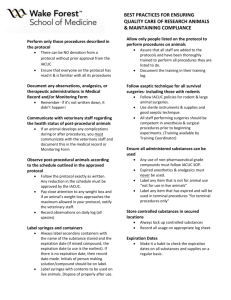
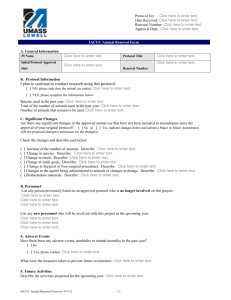
![Annual Renewal Form [Word doc]](http://s3.studylib.net/store/data/006747085_1-a9e44ad7ea0dbb852a0e727dcb34abcc-300x300.png)
